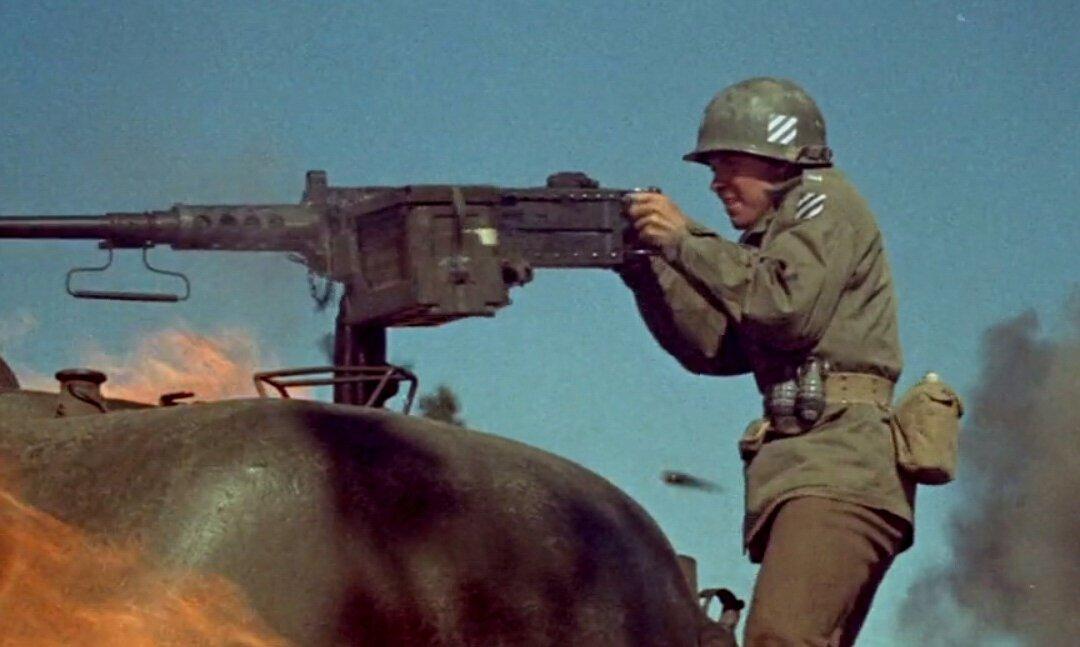The date: January 26, 1945. The place: Riedwihr Woods, Alsace, France.
Lt. Audie Murphy was the newly assigned commander of Company B. When the Germans attacked with over 200 soldiers and six tanks, Murphy ordered his men to withdraw into the forest. Nearby sat an American tank destroyer, knocked out of action and blazing with flames from German guns. On an impulse he never fully explained, Murphy raced to the tank destroyer, climbed aboard, and standing in full view of the enemy, opened fire with the vehicle’s machine gun. While the combat vehicle burned beneath him and German bullets and shells flew around him, the lone American blazed away with the .50 caliber, killing over a dozen enemy soldiers. That one-man stand broke up the German attack. As they retreated, a shell knocked Murphy from the vehicle, and he limped in a daze back toward his men. Behind him the flame-engulfed tank destroyer finally exploded.
For this action, Audie Murphy (1925–1971) received his nation’s highest award, the Congressional Medal of Honor. When the war ended, having received honors for his bravery in Sicily and Italy as well, Murphy returned home as America’s most highly decorated soldier.
And he was not quite 21, still too young to vote—almost, for that matter, to shave.






